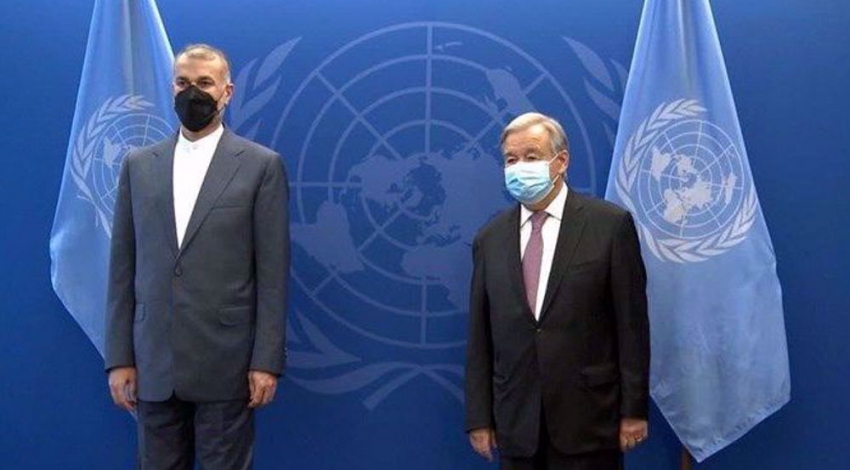Friday 26 August 2022 - 15:43
Story Code : 399627
Iran slams NPT conf. for refusing to call on Israel to join treaty
The Tenth Review Conference of the Parties to the NPT began on August 1 and is slated to wrap up on Friday.
In a phone call with the UN Secretary-General Antonio Guterres on Thursday, AmirAbdollahian lamented that the NPT conference�s President-designate Gustavo Zlauvinen had, unlike the conference�s previous editions, omitted to press the occupying regime to become a signatory to the treaty.
By leaving out all criticism of the Israeli regime, Zlauvinen had �set all of the previous conferences� achievements aside,� the Iranian official said, asserting, �[This] is not acceptable by us at all.�
Israel, which pursues a policy of deliberate ambiguity about its nuclear weapons program, is estimated to possess 200 to 400 nuclear warheads in its arsenal, making it the sole possessor of non-conventional arms in the Middle East region.
The illegitimate entity has, however, refused to either allow inspections of its military nuclear facilities by the International Atomic Energy Agency (IAEA) or sign the NPT.
What has emboldened Tel Aviv to accelerate its nuclear activities, according to observers, is the support that is provided for by the United States and Europe, which are both most critical of Iran�s peaceful nuclear energy program.
Turning to the issue of underway negotiations aimed at potential removal of the US�s sanctions against Iran, AmirAbdollahian said Washington had on Wednesday responded to Iran�s comments about a European Union proposal that is aimed at taking the talks out of its current impasse.
�Currently, my colleagues are engaged in examining [the US�s response],� the foreign minister said.
�We possess the serious and real will for conclusion of a strong and sustainable agreement, and have displayed this will in practice,� he noted.
Iran and world countries, including the US, struck a nuclear deal, known as the Joint Comprehensive Plan of Action (JCPOA), in 2015.
However, in a unilateral and illegal move, the US pulled out of the deal in May 2018, under pressure from the Israeli regime and its influential lobby groups in Washington. After withdrawing from the deal, the US also reinstated the draconian sanctions that the deal had lifted.
Since April last year, the Austrian capital of Vienna has been playing host to talks aimed at examining the prospect of Washington's return to the JCPOA, and fresh removal of the sanctions.
The European Union, which acts as the talks' coordinator, recently forwarded the fresh proposal to the Islamic Republic in order to break the impasse that has affected the negotiations due to American procrastination.
The UN chief, for his part, said he would address the Islamic Republic�s concerns about the Israeli regime�s refusal to join the NPT.
Addressing the issue of the Vienna negotiations, he expressed gratitude towards the Islamic Republic for its �constructive efforts and stances,� voicing hope that the talks would lead to a satisfactory resolution.
By PRESS TV�
# Tags











